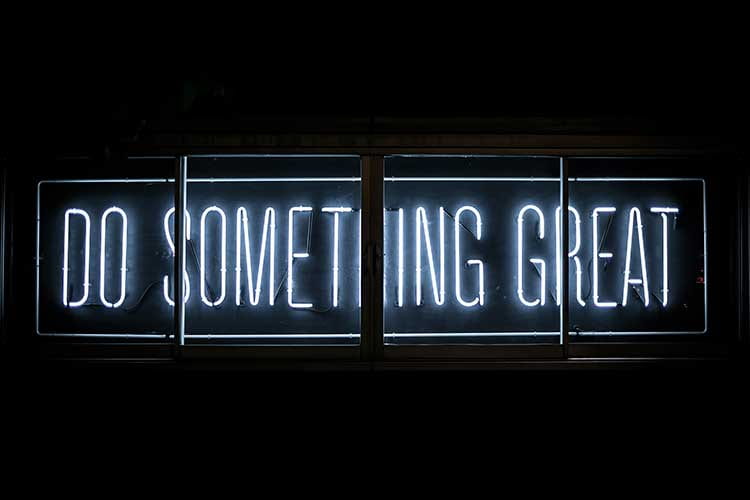As an up and coming creative artist, producer or practitioner:
- Do you have a creative idea that could make a difference in the world and also earn you money, but you don’t know where to start?
- Do you dream of starting a business to bring your creative ideas to the attention of more people?
- Do you have creative skills arising from your creative discipline that could earn you income?
If you’ve answered yes to any of these questions, you may be ready to explore what establishing a small business could open up for you. Sure it can seem intimidating, especially if you’re not sure how to go about setting up or handling the financial side of business development including tax.
It may even feel like you’re selling out by bringing commercial transactions into your creative practice. The thing is – starting a business, no matter how small, is itself creative work into which you can bring a great deal of your personal flair, vision and knowledge.
Here’s how, as a creative, you can get going as a contractor, freelancer, or in any other business arrangement you choose to establish for yourself.
Getting started checklist
This is one way to get started which is responsible for your financial future, saving you from stress about whether your business is in good financial order from the outset.
1. Open your new bank accounts
Set aside at least two separate bank accounts for your business finances. One is for your clients to pay into, what you pay yourself out of and what you use to pay your bills. The other is where a percentage of all payments that you receive from clients will sit in reserve for tax expenses. For example, all GST that is paid to you should be transferred into that tax account.
Hint: Check that the accounts are the best type of account for you. As your tax money will sit in one of the accounts for some time, a high interest savings account may be appropriate. For the non tax account, check that you have enough fees-free withdrawals per month to pay yourself without being penalised.
2. Hire a bookkeeper or accountant
It’s this person’s job to manage money and they will save you money by ensuring your obligations, records and finances are kept properly. They’ll also make sure that you’re taking advantage of any opportunities available to your unique circumstances. It is possible to proceed without this specialist, but small business owners know that the investment means they are better off. Here’s where to find a bookkeeper.
3. Start keeping records
If you have a book keeper or not, you will need to keep records of:
- All money you earn
- Money you spend on business related expenses
- GST receipts for all business related expenses
It’s worth noting your working hours also, as in government terms you are classed as a part or full time worker based upon the hours you work per week. This record will come into play if you need to claim subsidies or other government assistance in future.
Which kind of business am I in?
When you are employed by a business, you have an employment agreement and your employer will handle your PAYE (Pay As You Earn) tax and other required payments (such as ACC and optional KiwiSaver), leaving you with take-home pay deposited directly to your bank account. You may be entitled to a tax return at the end of the financial year if there is a chance you have paid too much tax and especially if you have changed you employment situation during the year. You can check this for yourself here.
If you are self-employed, you are probably a sole trader.
Sole traders
If you plan to work for a client and charge them, or produce a product that you charge for, you are likely going to be operating as a sole trader.
Sole traders are people who start in business or contracting on their own, without registering as a company. Many small business owners, contractors and self-employed people begin as sole traders. It’s the cheapest and easiest option, and may appeal to you if you want to make a living by following your passion, or to work as a contractor.
As a sole trader, you are responsible for:
- Issuing invoices to your clients
- Paying Goods and Services Tax (GST), if you earn over $60,000
- Paying personal income tax
- Paying for Accident Compensation Cover (ACC) levies
- All business debts
- Bookkeeping – tracking your business income and expenses
A great overview on becoming a sole trader and your responsibilities as a sole trader in New Zealand can be found on business.govt.nz.
Demystifying taxes and levies
Like “debt”, for many people “tax” is a dirty word.
Understanding what taxes mean for you will ensure you don’t run into any costly surprise tax bills. When you understand your obligations you can also save money by properly claiming back your entitlements. (That bookkeeper or accountant can help with this!)
Income Tax
Everyone who receives income is legally obligated to pay tax on that income. How much tax you pay is dependant on how much you personally earn in the financial year.
If you have heard the term PAYE, this stands for Pay As You Earn. This is income tax paid on the money you earn as it is paid out to you. If you are employed and paid by an employer they will pay this on your behalf from your earnings based on your overall annual income. However, once you become a sole-trader, you are responsible for paying this tax. Your bookkeeper can help you to plan a payment schedule.
Goods and Services Tax (GST)
In New Zealand, everyone pays a goods and services tax when they purchase a product or service. This tax is usually automatically included in the purchase price.
You do not have to register for GST just because you start a business as a freelancer or sole-trader. However, if your business brings in at least $60,000 (this is called “turnover”) in the last 12 months, or if you expect your turnover will be at least $60,000 in the next 12 months, then you must register for and file GST returns. Your bookkeeper can help you to do this.
When you are GST registered, you can claim the GST back on your business expenses. You also must pay GST on goods and services which you provide when you are GST registered. In this case, you will add GST to the invoice you issue your customer or the price you charge for your product. GST is currently 15% in New Zealand.
Accident Compensation Cover (ACC) Levy
The cost of your ACC levy is based on the work that you do and the risk it poses to you. Your ACC levy entitles you to receive medical care which is funded or subsidised by ACC – your healthcare provider will advise you if your treatment may be covered by ACC. This is typically for work related injuries, but some domestic accidents are also covered. You pay your ACC levy annually.
KiwiSaver
The government-sponsored KiwiSaver scheme is voluntary. You pay a percentage of income (most common for employed people) or by lump-sum into an investment account which is managed by a financial institution on your behalf. The government incentivises participation by contributing funds and otherwise supporting the growth of your KiwiSaver account. These funds are to be used to secure your future – in retirement, or it can be drawn from in other scenarios such as first-home buying. KiwiSaver is optional but encouraged! As a freelancer or sole-trader, you can make payments directly to your nominated KiwiSaver provider via internet banking for example.

Working out what to charge
When you start out, it can feel like a mystery trying to work out what is a fair rate to charge for your work. Luckily there is an element of science behind it!
1. Shop around
Find out what rate or salary people in a similar level earn. You can research using job sites, talk to recruiters or people in your network. This gives you an understanding of the “market rate” and what your customers might expect to pay for your time. If you are creating a product, you still need to know the rate you should be earning so you can price your products accordingly.
The Creative Store publishes an annual salary survey which includes hourly rates for a variety of jobs in the creative industries. While many of the jobs undertaken by freelance arts creatives are not in the salary survey, you will nonetheless get an idea of what certain types of jobs are charged out at – and you can adjust from there. No matter what, be sure to use the calculators in our Freelancers Toolkit.
2. Understand your business expenses
Work out the cost of being in business – materials, space, equipment, electricity and so on. You can find further guidance on this in our article, 15 Steps to a Paying Client.
3. Know your personal budget
You may know what you want to earn, but you need to know what amount of money you need in order to live – your personal budget tells you that information. We have a guide to personal finance and budgets here.
Armed with this information you can take what you need to pay yourself and add what your expenses are (including taxes and levies), and consider the market rate to settle on a price for your work you are comfortable with.

